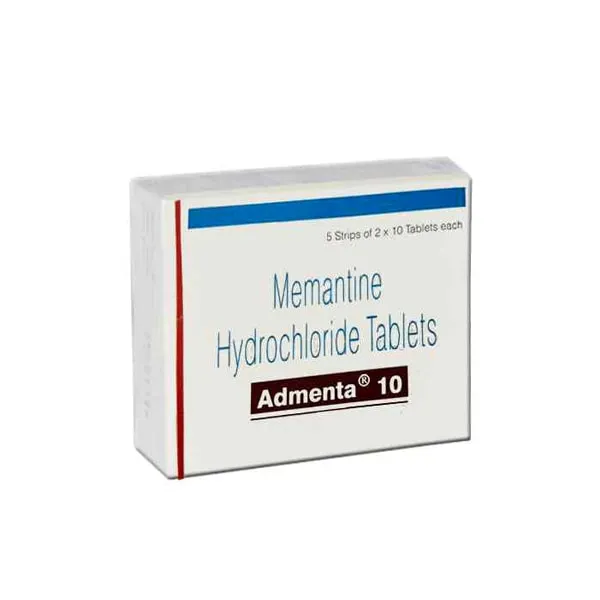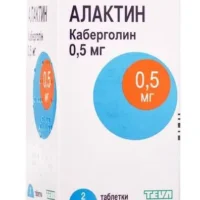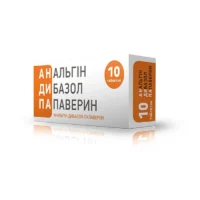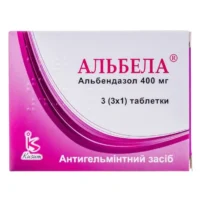Description
Admenta (Memantine) 10 Coated Tablets 10 mg. №30
Composition
Active ingredient: Memantine hydrochloride.
Inactive ingredients: Microcrystalline cellulose, colloidal anhydrous silica, talc, magnesium stearate, hypromellose, macrogol, titanium dioxide (E171).
Mechanism of Action
Memantine, the active ingredient in Admenta, acts by blocking the effects of excess glutamate, a neurotransmitter in the brain that may contribute to the symptoms of Alzheimer’s disease.
Pharmacological Properties
Memantine is an N-methyl-D-aspartate (NMDA) receptor antagonist that modulates the effects of glutamate, thereby regulating neuronal activity in the brain.
Indications for Use
Admenta (Memantine) 10 mg tablets are indicated for the treatment of moderate to severe Alzheimer’s disease.
Contraindications
Do not use Admenta (Memantine) 10 mg tablets if:
- You are allergic to memantine or any other ingredients in the product.
- You have severe renal impairment.
- You are pregnant or breastfeeding.
Side Effects
Common side effects of Admenta (Memantine) 10 mg tablets may include dizziness, headache, constipation, and fatigue. Contact your healthcare provider if you experience any persistent or severe side effects.
Usage Instructions
Recommended dosage: The usual starting dose is 5 mg once daily. The dose is then increased by 5 mg at weekly intervals. The maximum recommended dose is 20 mg daily.
Administration: Swallow the tablets whole with water. Do not crush or chew the tablets.
Benefits Compared to Analogues
Admenta (Memantine) 10 mg tablets offer a well-tolerated treatment option for patients with moderate to severe Alzheimer’s disease, with proven efficacy in improving cognitive function and activities of daily living.
Suitable Patient Groups
Admenta (Memantine) 10 mg tablets are suitable for adult patients with moderate to severe Alzheimer’s disease. Dosage adjustments may be necessary for elderly patients or those with renal impairment. Consult a healthcare provider for personalized recommendations.
Storage and Shelf Life
Store Admenta (Memantine) 10 mg tablets at room temperature away from moisture and heat. Keep the medication out of reach of children and pets. Do not use the tablets after the expiration date printed on the packaging.
Packaging Description
Admenta (Memantine) 10 mg tablets are available in blister packs containing 30 coated tablets. The packaging is designed to maintain the integrity and stability of the tablets until use.
Clinical Evidence and Proven Effectiveness
Research published in the Journal of Alzheimer’s Disease has demonstrated the efficacy of memantine in improving cognitive function and activities of daily living in patients with moderate to severe Alzheimer’s disease. Memantine has shown to be well-tolerated and can provide significant benefits in the management of Alzheimer’s disease.





